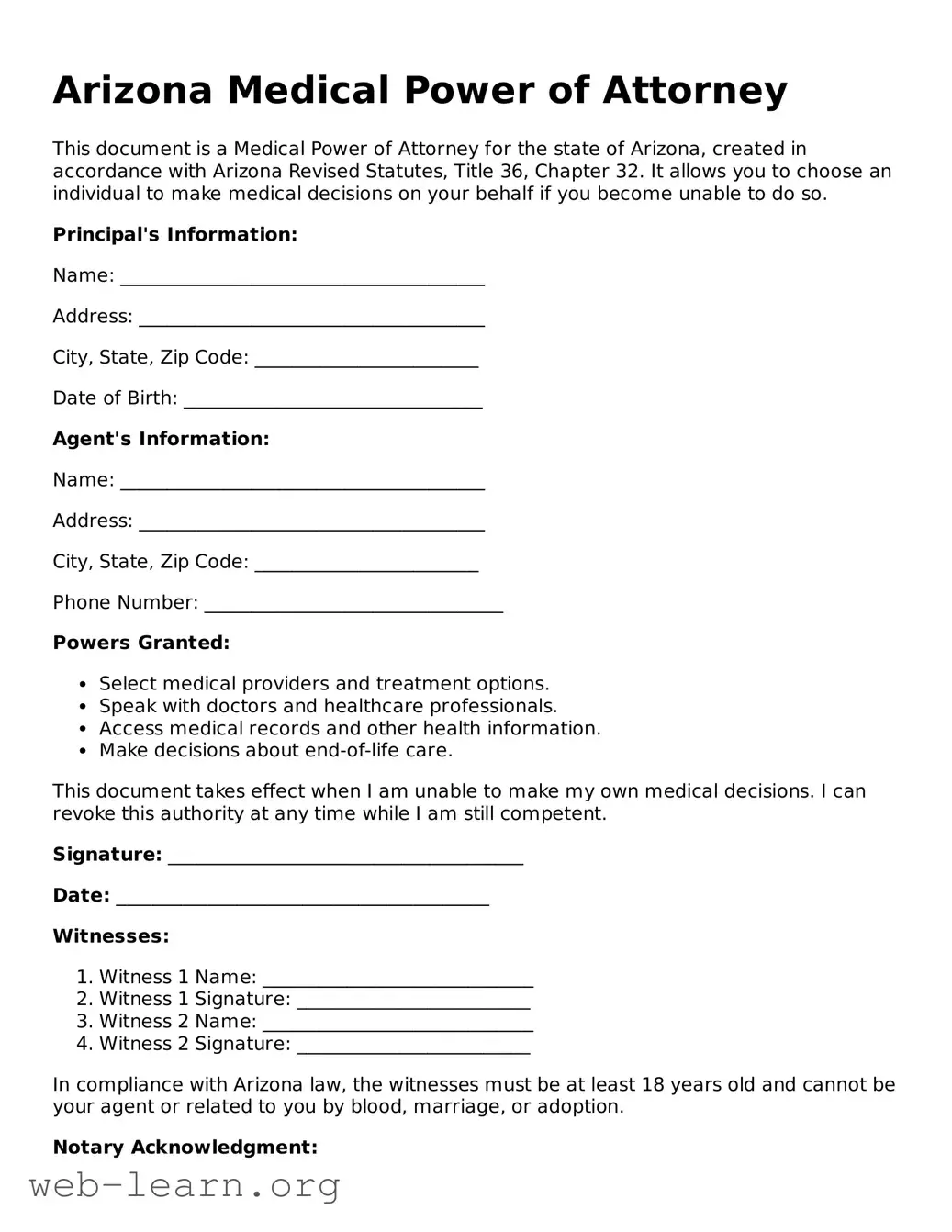Arizona Medical Power of Attorney
This document is a Medical Power of Attorney for the state of Arizona, created in accordance with Arizona Revised Statutes, Title 36, Chapter 32. It allows you to choose an individual to make medical decisions on your behalf if you become unable to do so.
Principal's Information:
Name: _______________________________________
Address: _____________________________________
City, State, Zip Code: ________________________
Date of Birth: ________________________________
Agent's Information:
Name: _______________________________________
Address: _____________________________________
City, State, Zip Code: ________________________
Phone Number: ________________________________
Powers Granted:
- Select medical providers and treatment options.
- Speak with doctors and healthcare professionals.
- Access medical records and other health information.
- Make decisions about end-of-life care.
This document takes effect when I am unable to make my own medical decisions. I can revoke this authority at any time while I am still competent.
Signature: ______________________________________
Date: ________________________________________
Witnesses:
- Witness 1 Name: _____________________________
- Witness 1 Signature: _________________________
- Witness 2 Name: _____________________________
- Witness 2 Signature: _________________________
In compliance with Arizona law, the witnesses must be at least 18 years old and cannot be your agent or related to you by blood, marriage, or adoption.
Notary Acknowledgment:
State of Arizona
County of ______________________
Subscribed, sworn to, and acknowledged before me this ____ day of ____________, 20__.
Notary Public Signature: _______________________________
My commission expires: _________________________________
